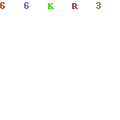 My plan had been to blog every Monday about the Power of Now, but I'm not sure if I'll want to do this for eight more weeks. There are a bunch of other books about spirituality that I'd prefer to read, but... this book has a big following, including by some friends I greatly respect, so I'll try and give it a chance for awhile longer.
My plan had been to blog every Monday about the Power of Now, but I'm not sure if I'll want to do this for eight more weeks. There are a bunch of other books about spirituality that I'd prefer to read, but... this book has a big following, including by some friends I greatly respect, so I'll try and give it a chance for awhile longer.Anyway, last week I blogged about what I liked and didn't like about the first chapter. I'll continue in that vein with Chapter 2, but this time I'll start with what I disliked and end with what I liked.
Dislikes
The thing I dislike most is that this book is just so damn negative! Maybe I'm unusual, but I had a happy childhood and have had an incredibly great life. In fact, I've often marveled at how lucky I've been. So, I just don't buy-in to all this crap about the past being full of pain. I think that's very much a victim mentality. Now I know Tolle is trying to get people to stop thinking like victims, but I don't think the way to do that is to say things like "the more you are identified with your mind, the more you suffer." If we have family and friends who we love and who love us, if we have health, if we have a home...we are blessed! We have so much to be grateful for! Why aren't we reminded of that rather than being told our past is only full of pain so we should think in the 'now?'
Just like the past or the future, my belief is that the ego, too, can have both positive and negative aspects. Tolle's perspective of the ego, much like how he describes the past and future, is very negative. He says "the ego is very vulnerable and insecure, and it sees itself as constantly under threat. This, by the way, is the case even if the ego is outwardly very confident." Great! He's even saying confidence is only a front! I so disagree with that. I think confidence is everything. Our uniqueness is beautiful and once we recognize that, we have an inner-confidence that is a key to happiness.
Likes
I continue to agree with Tolle's description of consciousness. In this chapter, he describes past pain as "pain-body" and the ability to "observe" when you are falling into a pattern of unhappiness. He says, "You are now the witness or watcher of the pain-body. This means that it cannot use you anymore by pretending to be you, and it can no longer replenish itself through you." He goes on to talk more about dissolving the pain-body through a "process of transmutation."
I also agreed with Tolle in his description of some negative aspects of ego, such as the need to be right, aggressiveness, and defensiveness and would agree that these are the root of many arguments and relationship problems.
The Laptop Dancer's Advice: Find the humor
Although a lot of Tolle's writing sounds like psycho-babble to me, I do agree there's something to be said about observing your thoughts as an outsider. When I was writing The Laptop Dancer Diaries, it was kind of cool that part of my mind was like an "observing author" of the events that were happening. And when something embarrassing would happen, instead of getting all upset about it, I would think: "This will make a good story for my book!" Another great thing about writing a humor memoir was that I was always looking for the humor in life's events. So, just in case you get tired of being in the "now" another strategy might be that when something negative happens, see if you can make a funny story out of it. There's a lot of truth to that saying: "We'll laugh about this some day." Make that day as soon as possible!



 ShareThis
ShareThis






